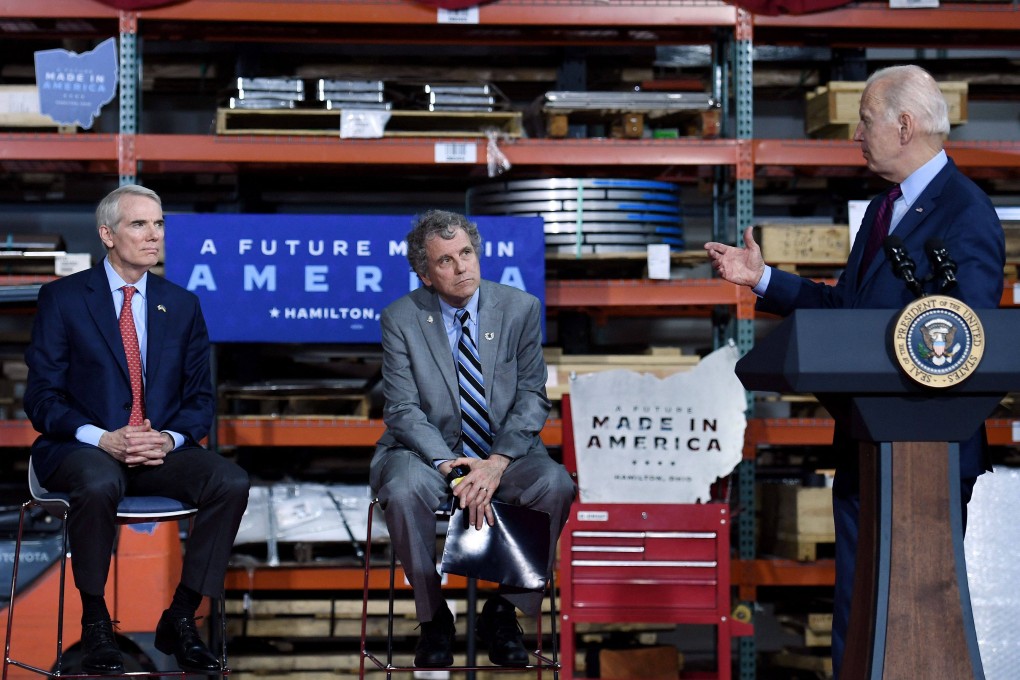On Balance | Biden’s Ohio moment just a mirage of bipartisanship with Republicans
- The US president’s plan to increase domestic manufacturing was a rare moment of cross-party cooperation which is likely to prove fleeting
- With Republicans set to reclaim control of Congress this year, expect less action on issues important to voters and more nihilism

US President Joe Biden’s appearance at an Ohio manufacturer of metal alloy parts last week with Republican Senator Rob Portman offered hope for American politics – or was it fantasy?
The evolution of American political discourse during the past decade would seem to doom the long-term prospects for cooperation between the country’s two political parties on urgent problems. Watching the two men shake hands, share a stage and talk about a common cause was kind of like looking at photos from the last big holiday you had before Covid-19 hit.
Portman’s participation in the plan launched on the floor of United Performance Metals’ factory in Hamilton, Ohio, shows that some within the Republican Party are more interested in creating new policies than undermining and overturning everything that came before them.
